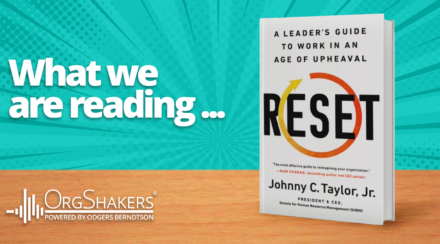Menu

‘Go With Your Gut’: How Physical and Mental Wellbeing are Impacted by What We Eat and Drink
Global Prebiotics Week is an important reminder that what we eat and drink play a huge part in both our physical and mental wellbeing.
There is a wealth of information available to us today to inform how our bodies and minds work best, and what we can do to keep ourselves healthy. Admittedly some of the information is conflicting, and some downright wrong, but there is scientific consensus around many areas and yet we do not capitalise enough on this knowledge.
Feuerbach said, ‘we are what we eat’, and we now know this to be very true. So how does this knowledge apply to the world of work?
Well, although the health and wellbeing of employees has increasingly become a priority for employers, the Health and Safety Executive found that in the year 2021 to 2022 the UK was still losing over 17-million working days to work-related stress, depression and anxiety.
Although progressive organizations are implementing initiatives to address workplace factors which are harmful to employees’ mental health, few are focused how we might increase our resilience to these factors. And here there are some basic human needs we can, and should, pay attention to, including sleep, hydration, exercise, rest, and nutrition.
Ignoring these basic needs comes at a high cost to our health – today and in the future – which means that to optimize their wellbeing strategies, organizations should increasingly be promoting the importance of maintaining and improving physical and mental health.
While maintaining of the brain, hydrating of the body, and looking after the health of one’s gut may all sound like knowledge reserved for medical professionals, all these things can have noticeable effects on an employee’s productivity, engagement, and emotional state. And all are inextricably interlinked.
Mental and physical health can no longer be looked at in isolation from each other. For example, your gut health can play a very big role in the health and optimization of the brain – which has a direct effect on your mental health.
This is because all of us have a ‘gut-brain axis’. The two are connected both biochemically (the gut provides around 95% of the body’s serotonin, which controls feelings of happiness and wellbeing), and physically by the vagus nerve which connects more than 100 million nerve cells in the gut lining directly to the brain stem.
Because of this link, scientists have suggested that mental wellbeing is impacted by the health of the gut microbiome – a complex community of trillions of bacteria which and can vary enormously from person to person. And as the health of an individual’s gut biome is directly related to the food and drink we consume, a balanced diet can help maintain mental as well as physical wellbeing.
Just like the gut, the brain needs to be nourished and cared for. If this is done correctly, then this has been proven to help improve energy levels, sharpen focus, reduce brain fog, strengthen memory and keep one’s mood balanced.
One of simplest and most effective ways of supporting our brains each day is through drinking sufficient water. Studies have found that as little as 1-2% body water loss directly affects the brain and can lead to cognitive impairment. Not making time to drink some water when working can quickly start to reduce mental focus and create muddled thinking.
So, what can employers do? Making sure you have fresh water readily available at workplaces is one thing, but we are working in a hybrid world now, so we need to support our employees’ wellness wherever they work.
Whilst it may seem counterintuitive in our ‘always on’, ‘always busy’, ‘do more work with less people’ working lives, employers should be encouraging (or in some organisations they are trying mandating) employees to take adequate breaks to rehydrate, eat and take some rest.
This should be seen as the gold standard if we want a healthy, engaged, energized, and productive workforce. Better for employees, customers, the organization, and society.
If employers seek to understand how to properly support the mind and body health of their employees, then they will be rewarded by employees working at their optimum.
This might start with encouraging ‘nudges’ such as free water bottles, but fundamentally we need to address what we know about basic human needs when designing work.
With Gallup’s State of the Global Workforce report finding only 21% of workers are engaged with their work, or feel cared about by their employers, this would be a great time to consider all the benefits that a proactive approach to employee wellness has to offer.
If you would like to speak about this topic in more detail and discuss potential wellbeing strategies, please get in touch with us here!
Copyright OrgShakers: The global HR consultancy for workplace transformation founded by David Fairhurst in 2020



